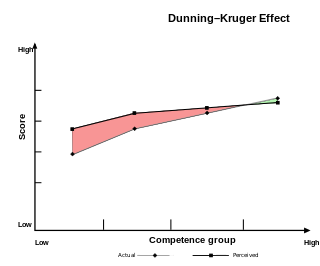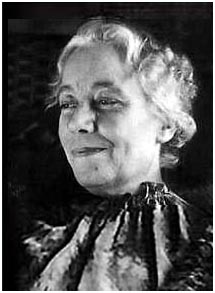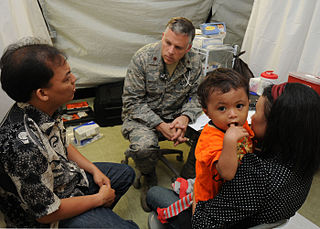Related Research Articles
Self-esteem is confidence in one's own worth or abilities. Self-esteem encompasses beliefs about oneself as well as emotional states, such as triumph, despair, pride, and shame. Smith and Mackie (2007) defined it by saying "The self-concept is what we think about the self; self-esteem, is the positive or negative evaluations of the self, as in how we feel about it."
Narcissistic personality disorder (NPD) is a personality disorder characterized by a life-long pattern of exaggerated feelings of self-importance, an excessive need for admiration, a diminished ability or unwillingness to empathize with others' feelings, and interpersonally exploitative behavior. Narcissistic personality disorder is one of the sub-types of the broader category known as personality disorders. It is often comorbid with other mental disorders and associated with significant functional impairment and psychosocial disability.

Psychology is an academic and applied discipline involving the scientific study of human mental functions and behavior. Occasionally, in addition or opposition to employing the scientific method, it also relies on symbolic interpretation and critical analysis, although these traditions have tended to be less pronounced than in other social sciences, such as sociology. Psychologists study phenomena such as perception, cognition, emotion, personality, behavior, and interpersonal relationships. Some, especially depth psychologists, also study the unconscious mind.
A medical error is a preventable adverse effect of care ("iatrogenesis"), whether or not it is evident or harmful to the patient. This might include an inaccurate or incomplete diagnosis or treatment of a disease, injury, syndrome, behavior, infection, or other ailment.

A social skill is any competence facilitating interaction and communication with others where social rules and relations are created, communicated, and changed in verbal and nonverbal ways. The process of learning these skills is called socialization. Lack of such skills can cause social awkwardness.
Heinz Kohut was an Austrian-born American psychoanalyst best known for his development of self psychology, an influential school of thought within psychodynamic/psychoanalytic theory which helped transform the modern practice of analytic and dynamic treatment approaches.
Rationalization is a defense mechanism in which apparent logical reasons are given to justify behavior that is motivated by unconscious instinctual impulses. It is an attempt to find reasons for behaviors, especially one's own. Rationalizations are used to defend against feelings of guilt, maintain self-respect, and protect oneself from criticism.

Gillick competence is a term originating in England and Wales and is used in medical law to decide whether a child is able to consent to their own medical treatment, without the need for parental permission or knowledge.

The Dunning–Kruger effect is a cognitive bias whereby people with low ability, expertise, or experience regarding a certain type of task or area of knowledge tend to overestimate their ability or knowledge. Some researchers also include in their definition the opposite effect for high performers: their tendency to underestimate their skills.

Medical jurisprudence or legal medicine is the branch of science and medicine involving the study and application of scientific and medical knowledge to legal problems, such as inquests, and in the field of law. As modern medicine is a legal creation, regulated by the state, and medicolegal cases involving death, rape, paternity, etc. require a medical practitioner to produce evidence and appear as an expert witness, these two fields have traditionally been interdependent.

Narcissism is a self-centered personality style characterized as having an excessive interest in one's physical appearance or image and an excessive preoccupation with one's own needs, often at the expense of others.
Malignant narcissism is a psychological syndrome comprising an extreme mix of narcissism, antisocial behavior, aggression, and sadism. Grandiose, and always ready to raise hostility levels, the malignant narcissist undermines families and organizations in which they are involved, and dehumanizes the people with whom they associate.

Karen Horney was a German psychoanalyst who practised in the United States during her later career. Her theories questioned some traditional Freudian views. This was particularly true of her theories of sexuality and of the instinct orientation of psychoanalysis. She is credited with founding feminist psychology in response to Freud's theory of penis envy. She disagreed with Freud about inherent differences in the psychology of men and women, and she traced such differences to society and culture rather than biology. She is often classified as neo-Freudian.
Healthy narcissism is a positive sense of self that is in alignment with the greater good. The concept of healthy narcissism was first coined by Paul Federn and gained prominence in the 1970s through the research of Heinz Kohut and Otto Kernberg. It developed slowly out of the psychoanalytic tradition, and became popular in the late twentieth century.
Veterinary ethics is a system of moral principles that apply values and judgements to the practice of veterinary medicine. As a scholarly discipline, veterinary ethics encompasses its practical application in clinical settings as well as work on its history, philosophy, theology, and sociology. Veterinary ethics combines veterinary professional ethics and the subject of animal ethics. The subject of veterinary ethics can be interpreted as an extension of critical thinking skills necessary to make the decisions in veterinary care in order to support the profession's responsibilities to animal kind and mankind.
Human factors are the physical or cognitive properties of individuals, or social behavior which is specific to humans, and influence functioning of technological systems as well as human-environment equilibria. The safety of underwater diving operations can be improved by reducing the frequency of human error and the consequences when it does occur. Human error can be defined as an individual's deviation from acceptable or desirable practice which culminates in undesirable or unexpected results.
Dive safety is primarily a function of four factors: the environment, equipment, individual diver performance and dive team performance. The water is a harsh and alien environment which can impose severe physical and psychological stress on a diver. The remaining factors must be controlled and coordinated so the diver can overcome the stresses imposed by the underwater environment and work safely. Diving equipment is crucial because it provides life support to the diver, but the majority of dive accidents are caused by individual diver panic and an associated degradation of the individual diver's performance. - M.A. Blumenberg, 1996
Cultural humility is the “ability to maintain an interpersonal stance that is other-oriented in relation to aspects of cultural identity that are most important to the [person].” Cultural humility is different from other culturally-based training ideals because it focuses on self-humility rather than being an other-directed "they/them" way of achieving a state of knowledge or awareness. It is helpful to see as others see; what they themselves have determined is their personal expression of their heritage and their “personal culture”. Cultural humility was formed in the physical healthcare field and adapted for therapists, social workers, and medical librarians, to learn more about experiences and cultural identities of others and increase the quality of their interactions with clients and community members.
Narcissism in the workplace involves the impact of narcissistic employees and managers in workplace settings.

Cultural competence in healthcare refers to the ability for healthcare professionals to demonstrate cultural competence toward patients with diverse values, beliefs, and feelings. This process includes consideration of the individual social, cultural, and psychological needs of patients for effective cross-cultural communication with their health care providers. The goal of cultural competence in health care is to reduce health disparities and to provide optimal care to patients regardless of their race, gender, ethnic background, native languages spoken, and religious or cultural beliefs. Cultural competency training is important in health care fields where human interaction is common, including medicine, nursing, allied health, mental health, social work, pharmacy, oral health, and public health fields.

In medical law and medical licensing, fitness to practise is a concept in the regulation of medicine regarding whether a health professional or social worker should be allowed to work. While fitness to practice can include matters of technical competence, including qualifications the concept also contains questions about the implications of the health of professional and their ethics.
References
- ↑ Banja, John, Medical Errors and Medical Narcissism, 2005
- ↑ Banja, John, (as observed by Eric Rangus) John Banja: Interview with the clinical ethicist